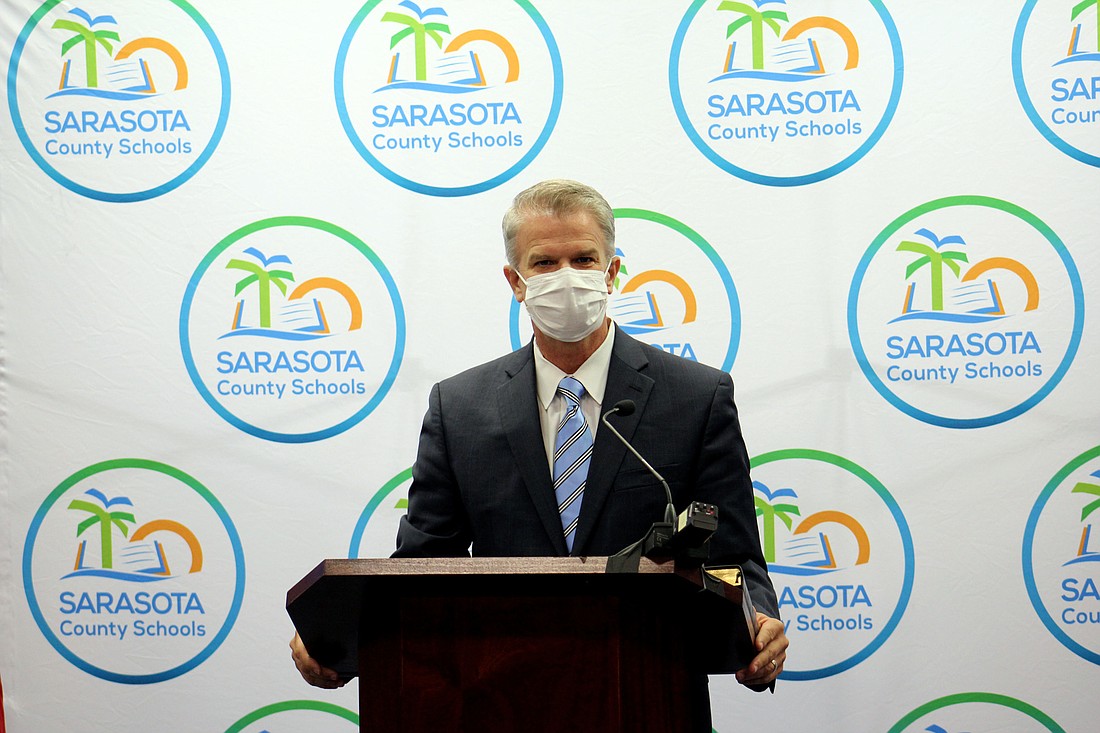- December 26, 2024
-
-
Loading

Loading

In recent months, Sarasota County Schools has been under state scrutiny for its COVID-19 plans, but the district will now be under Department of Education observation for its exceptional student education programs.
The changes come after a DOE investigation in December found that Sarasota officials incorrectly placed a student in a program for those with cognitive disabilities.
The investigation followed a lawsuit filed against the district after a boy was for six years placed in a program for students with disabilities even though he did not belong in the program. The district reached a settlement with boy’s family for $250,000.
As a result of the investigation, the DOE will monitor the district and seek additional action to bring the school into compliance with the law.
During a school board workshop, Superintendent Brennan Asplen told board members the district will now collaborate with the DOE to focus on:
The district will submit its policies for students with disabilities to the DOE for approval every year for the next three years.
“This is going to be a process — I will tell you that,” Asplen said.
Already, district administrators and DOE officials met with Exceptional Student Education teachers, pupil support services, research assessment and evaluation departments to work on professional development and learn about special policies.
A large portion of the changes is related to determining which students belong in the district’s program Access Points, which exposes students with cognitive disabilities to curriculum at a simpler level, said Tom McDowell, an ESE specialist hired to review the district’s policies.
Children in Access Points also do not take state testing, which caused some residents to believe students were incorrectly placed, so the district could boost its overall grade, thereby increasing its funding. However, the DOE investigation found those claims unsubstantiated.
According to McDowell’s report, there are six language-impaired students and one specific learning disability student on Access Points. There are 24 students being monitored who were taken off Access Points since 2016.
The problem, McDowell said, is that when a student who doesn’t need to spends formative years in the program, their academic development can be slowed. To avoid future instances, he said the district needs a greater understanding of what a cognitive disability is.
“There also needs to be a better understanding that when students are taken from Access Points and put back in general curriculum, that they have the support systems and things they need,” McDowell said.
In his March investigation, McDowell found that there was no ill intent by staff members when they unnecessarily placed a student in Access Points, but mistakes were still made.
“The bottom line was this: There was no intent to do harm,” he said. “However, there was a lot of misunderstanding and a lot of positions that people interpreted kind of what they thought it should be.”
Board member Bridget Ziegler, however, questioned whether McDowell had evidence to substantiate his claim, stating that even if teachers didn’t do it intentionally, the judge that ruled in the boy’s favor said they operated with “deliberate indifference.”
McDowell said he did not review the boy’s case specifically and that his assessment was based on the district’s overall data.
Asplen has directed ESE staff to review the files of each student in the Access Points curriculum to ensure proper placement.
Asplen said he is confident staff is up to the task of evaluating the district’s protocols.
“I strongly believe that our teachers and our administrators in our county maintain a growth mindset and are committed to continuous improvement to provide a superior and progressive education for all our students,” Asplen said.